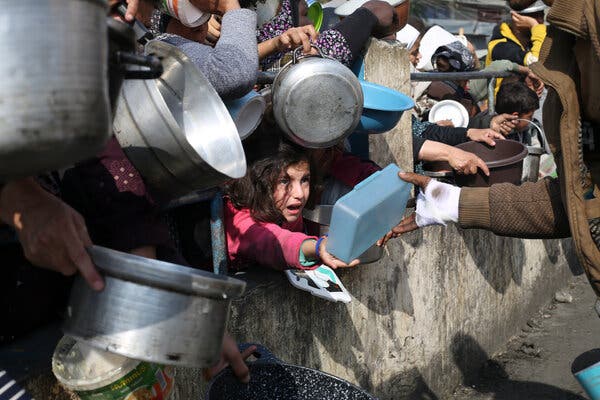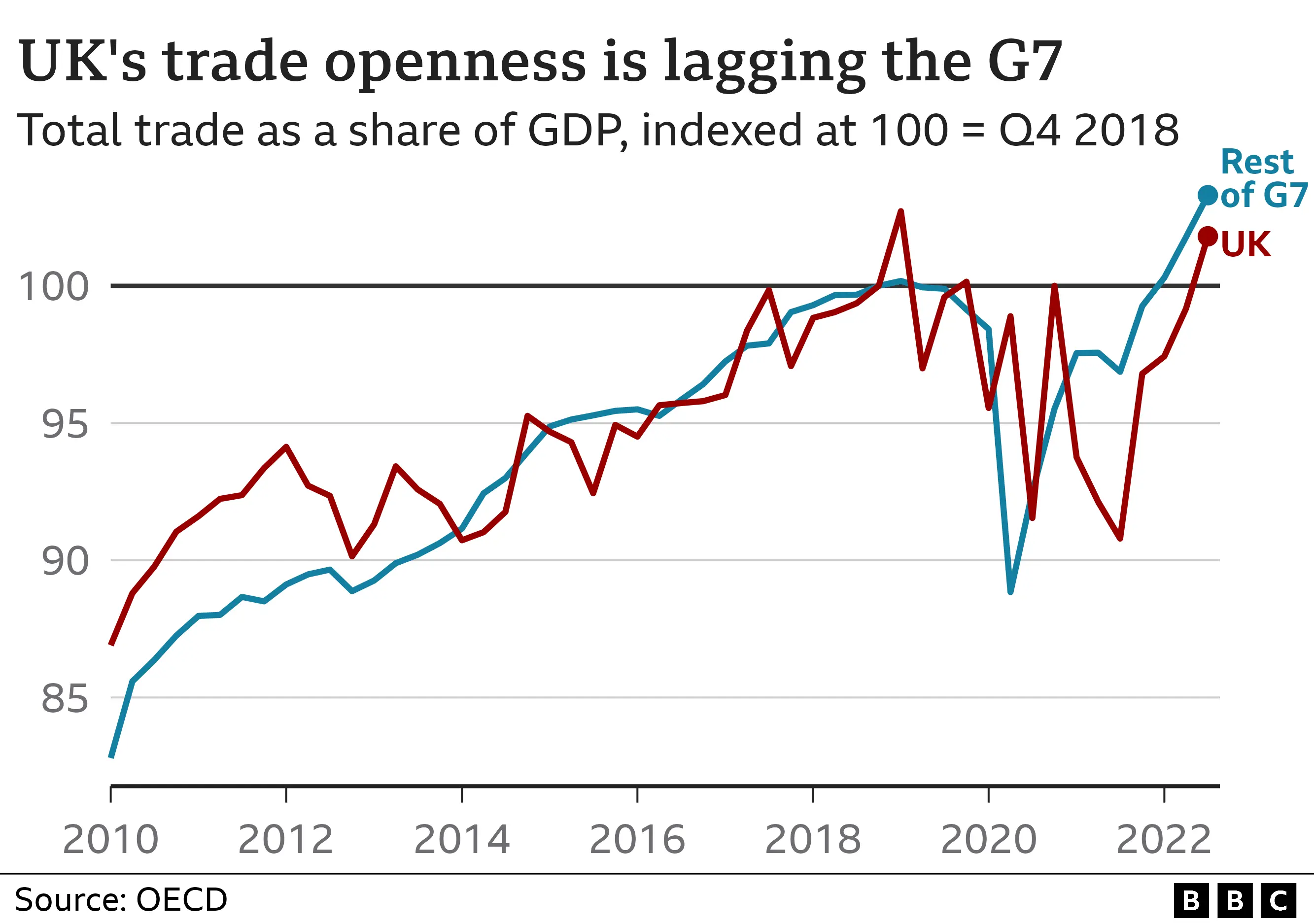Israel To Allow Food Aid Into Gaza After Months-Long Blockade

Table of Contents
The Humanitarian Crisis in Gaza Preceding the Decision
The decision to allow food aid to Gaza comes after a prolonged period of escalating hardship. The severity of the situation demanded immediate action.
Escalating Food Insecurity
The Gaza food crisis has reached alarming levels. Months of blockade have led to widespread food insecurity in Gaza, with devastating consequences.
- Malnutrition rates: Recent reports indicate that child malnutrition rates have soared to over 30%, with many families struggling to afford even basic necessities. The World Health Organization (WHO) has warned of a potential public health emergency if the situation isn't addressed swiftly.
- Impact on daily life: Food shortages are dramatically impacting daily life. Families are skipping meals, children are suffering from stunted growth, and the overall health of the population is deteriorating rapidly. Many rely on meager rations from aid organizations, leaving them constantly vulnerable to further food insecurity in Gaza.
- Urgent appeals from aid organizations: Organizations like UNRWA (United Nations Relief and Works Agency for Palestine Refugees in the Near East) and various NGOs have issued urgent pleas for increased Gaza humanitarian aid, highlighting the critical need for immediate intervention to avert a wider catastrophe. They've consistently highlighted the severity of the Gaza food crisis, pleading for the opening of borders.
Impact of the Blockade on Essential Supplies
The Gaza blockade impact extends far beyond food. Restrictions severely limit access to essential resources, exacerbating the humanitarian crisis.
- Restricted supplies: The blockade has restricted access to crucial medical supplies, fuel, and building materials, crippling healthcare services and infrastructure. This has created a vicious cycle, where lack of resources leads to worsening health and economic conditions which then further exacerbates the impact on food production and distribution.
- Healthcare and infrastructure: Hospitals are facing critical shortages of medicine and equipment, while the lack of fuel limits electricity supply, impacting crucial medical services. The crippled infrastructure makes the delivery of Gaza humanitarian aid, including food, even more challenging.
- Economic consequences: The blockade has devastated the Gazan economy, resulting in widespread unemployment and poverty, further hindering the ability of families to afford food. This Gaza fuel shortage, for instance, impacts transportation and agricultural production, which are vital to some level of food security within the territory.
Israel's Announcement and its Conditions
The announcement to allow Israel Gaza food aid is a significant development, though it comes with important considerations.
Details of the Food Aid Program
While the lifting of restrictions is welcome, the details of the Israel Gaza food aid program are crucial.
- Types of food aid: The permitted food aid includes essential staples like wheat, flour, rice, and cooking oil. The specific quantities allowed remain subject to ongoing negotiations and depend on the availability of secure transit routes.
- Quantities and beneficiaries: The initial quantities are designed to provide relief for a limited period, targeting the most vulnerable populations. Millions are in need of food aid to Gaza and the available resources fall drastically short of meeting the overall needs of the population.
- Entry points and distribution: The designated entry points and distribution mechanisms are carefully monitored to ensure that the aid reaches its intended recipients efficiently. The specifics about the distribution networks are key to the success of the Gaza food distribution efforts.
- Conditions: Although significant steps have been taken, there are still conditions attached to the aid delivery. These conditions are a key point of ongoing contention and subject to political negotiations.
International Response and Pressure
The international community played a crucial role in advocating for increased food aid to Gaza.
- Statements from key actors: The UN, EU, and various other governments consistently called for an end to the blockade and increased humanitarian access.
- Diplomatic efforts: Intense diplomatic efforts from various countries and international organizations ultimately led to Israel's decision to allow the entry of humanitarian aid delivery to Gaza.
- Role of humanitarian organizations: NGOs have been instrumental in providing aid and documenting the extent of the crisis, drawing international attention to the urgent need for intervention.
Long-Term Challenges and the Future of Food Security in Gaza
While the immediate crisis is being addressed, long-term solutions are necessary for sustainable food security in Gaza.
Addressing Underlying Issues
Addressing the long-term challenges requires a multifaceted approach.
- Political obstacles: The ongoing Israeli-Palestinian conflict and the political instability in Gaza significantly hinder long-term development efforts. Resolving the political tensions is paramount to achieving sustainable Gaza long-term solutions.
- Economic factors: The blockade's devastating impact on the Gazan economy necessitates targeted economic recovery initiatives to enable local food production and reduce reliance on external aid. Strategies for achieving Gaza economic recovery will be a critical step in addressing food security.
- Sustainable development: Investing in sustainable infrastructure, agriculture, and job creation programs is crucial for building resilient communities and achieving lasting food security. This focus on sustainable food security in Gaza must be prioritized in any long-term plan.
The Need for Continued International Support
Sustained international engagement is crucial for addressing the root causes of food insecurity in Gaza.
- Increased funding: Continued and increased funding for humanitarian aid is essential for providing immediate relief and supporting long-term development programs. Continued financial support will be needed to bolster the supply of continued aid to Gaza.
- Long-term development projects: Investing in long-term projects that foster economic growth, improve infrastructure, and strengthen agricultural capabilities is vital for achieving self-sufficiency and lasting food security. A program of long-term assistance to Gaza is essential for achieving sustainable change.
- International collaboration: International cooperation among governments, NGOs, and international organizations is necessary to coordinate aid efforts, promote sustainable development, and address the underlying political and economic factors that contribute to food insecurity. This calls for an expansion of Gaza reconstruction initiatives beyond simple humanitarian aid.
Conclusion
The recent decision to allow food aid to Gaza is a crucial step towards addressing the dire humanitarian situation. However, this is merely a temporary solution. The ongoing blockade, economic instability, and political tensions continue to pose significant long-term challenges to food security in Gaza. The international community must remain committed to providing sustained humanitarian assistance, promoting economic development, and working towards lasting solutions to ensure a future free from hunger for the people of Gaza. We urge readers to stay informed, support organizations providing humanitarian aid (links to relevant organizations would be included here), and advocate for long-term solutions to ensure sustainable food security in Gaza. Let's work together to make sure food aid to Gaza isn't just a temporary measure, but a stepping stone towards a brighter future for all.

Featured Posts
-
 Revenirea Fratilor Tate In Romania Imagini De La Defilarea Prin Centrul Bucurestiului
May 21, 2025
Revenirea Fratilor Tate In Romania Imagini De La Defilarea Prin Centrul Bucurestiului
May 21, 2025 -
 Brexit Impact Uk Luxury Exports To Eu Suffer Growth Lag
May 21, 2025
Brexit Impact Uk Luxury Exports To Eu Suffer Growth Lag
May 21, 2025 -
 Leeds Uniteds Championship Lead Restored Tottenham Loanee Shines
May 21, 2025
Leeds Uniteds Championship Lead Restored Tottenham Loanee Shines
May 21, 2025 -
 Sandylands U Tv Guide Your Complete Episode Guide
May 21, 2025
Sandylands U Tv Guide Your Complete Episode Guide
May 21, 2025 -
 Tikkie Gebruiken Een Handleiding Voor Nederlandse Bankieren
May 21, 2025
Tikkie Gebruiken Een Handleiding Voor Nederlandse Bankieren
May 21, 2025
